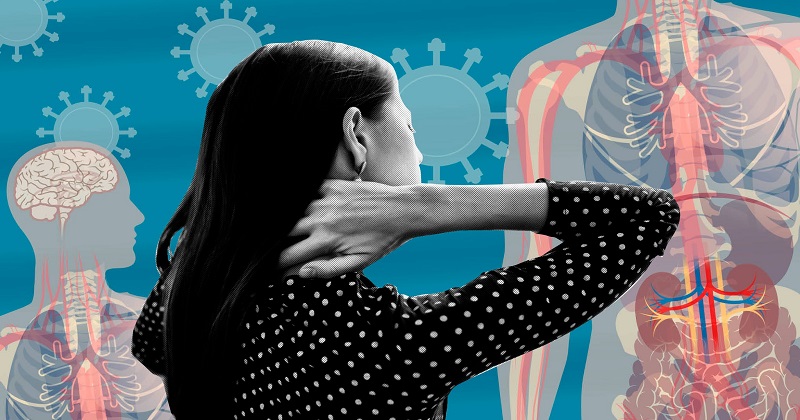
One in three patients in Israel were found to have failed to regain their pre-infection health levels even months later, according to a recent research, which also showed that the effect of Covid-19 on adults does not fade quickly. Based on surveys completed by 699 patients, researchers at Maccabi Healthcare Services, the nation’s health fund, concluded that ‘on average after around five months of recovery about 34.6% of participants reported not recovering to their baseline health condition’.
According to a report in The Times of Israel, the study’s principal investigator, Dr. Tal Palaton, head of research and innovation at Maccabi, claimed that symptoms like memory loss and muscle pain still plagued the majority of patients. He also warned of the negative effects long-term COVID would have on the public health. The report warned that this condition will have a ‘significant impact’ on public health. When compared to people who had no symptoms, the researchers observed that these symptoms were far more prevalent in people who had coronavirus symptoms. Additionally, they were more common in women, overweight persons, and smokers.
The survey was carried out by Maccabi in September 2021, two months before the Omicron strain was found in Israel, which means that the findings do not represent any variations in long COVID patterns following recovery from Omicron compared to earlier strains. Despite the study’s huge sample size, only 7.5% of people who were requested to participate in the survey are represented by it. The study was voluntary, so persons who had symptoms may have been more motivated to respond than other respondents. The authors thus admit the possibility of some ‘selection bias’. However, the study adds to the expanding body of literature that highlights the phenomena of extended COVID, its occurrence, and its effects on wellbeing.
The study is an essential contribution to the field of epidemiology, according to epidemiologist Ronit Calderon-Margalit of the Hebrew University who was not engaged in the research. ‘In my opinion, extended COVID encounters between physicians and healthcare workers are rather common. In terms of frequency, prevalence, symptoms, and prognosis, the illness is not yet fully understood’, she told The Times of Israel. ‘The condition likely adds to the strain on community healthcare, and there is a paucity of knowledge regarding its treatment, appropriate follow-up, and potential long-term effects. To shed light on this subject, we require high-quality studies’, she continued.
The latest study, which included a control group of around 1,398 individuals, demonstrates how several health issues are substantially more prevalent among persons who have recovered from COVID than in other groups. Approximately 37% of Covid patients who made a full recovery, as opposed to 14% of those who weren’t infected, complained of memory problems. Similar rates for chest pain and weakness were 53% vs 33%, and 20% and 12%, respectively. Myalgia, or aches and pains in the muscles, affected 24.7% of those without COVID and 40% of those with it.

Post Your Comments